Download this article as a PDF.
On November 21, 2023, Canada’s Deputy Prime Minister and Minister of Finance, the Honourable Chrystia Freeland, delivered the 2023 Fall Economic Statement (FES 2023), a mid-fiscal year update that was narrower in focus than previous economic statements.
FES 2023 highlighted key metrics of the Canadian economy and addressed two key challenges: Canada’s housing crisis and the impact of rapidly rising cost-of-living expenditures.
The Canadian Economy
While inflation is dropping and employment is up, many Canadians are still struggling with higher housing costs and consumer prices. The Consumer Price Index rose 3.1% in October 2023 (year-over-year), due in large part to housing costs, which jumped 6.1%. Mortgage interest costs rose 30.5%, while rental costs increased 8.2%. Without the impact of housing costs, inflation would be around 1.9%.
In its efforts to curb spending and rein in inflation, the government outlined the following fiscal objectives in preparation for Budget 2024:
- Maintaining the 2023-24 deficit at or below the Budget 2023 projection of $40.1 billion.
- Lowering the debt-to-GDP ratio in 2024-25 relative to the FES 2023 and keeping it on a declining track thereafter.
- Maintaining a declining deficit-to-GDP ratio in 2024-25 and keeping deficits below one per cent of GDP in 2026-27 and future years.
Economists are cautioning the Canadian economy will demonstrate slow, sluggish growth over the next year.
Tax-Free First Home Savings Account (FHSA)
As of October 31, 2023, more than 250,000 Canadians opened an FHSA. The FHSA is now available at Wellington-Altus; please reach out to your Wellington-Altus advisor if you are interested in opening an FHSA.
First introduced in Budget 2022, the FHSA is a registered savings account that allows Canadians to contribute up to $8,000 per year, and up to a lifetime limit of $40,000, towards a down payment for a qualified first home. FHSA contributions are tax deductible like an RRSP contribution, and withdrawals are tax-free like a TFSA, making them tax-free in and tax-free out.
Canada’s Housing Action Plan
The Canada Mortgage and Housing Corporation (CMHC) estimates Canada will need to build 3.5 million more homes by 2030 to restore housing affordability. This will require the co-operation of all levels of government –federal, provincial, territorial, and municipal – and other public and private housing stakeholders.
Two notable initiatives were addressed in FES 2023 to address housing, namely a crackdown on non-compliant short-term rentals and the new Canadian Mortgage Charter.
Curbs on non-compliant short-term rentals
To curb investor activity or speculative investing behaviour that negatively impacts the cost of affordable housing, FES 2023 announced the government’s intention to introduce legislation denying the deduction of expenses by short-term rental operators, such as those affiliated with Airbnb and VRBO, where their properties are located in provinces and municipalities that prohibit short-term rentals or where they are not compliant with applicable provincial and municipal licensing, permitting or registration requirements.
As well, FES 2023 included $50 million in support over three years, starting in 2024-25, to municipalities for their enforcement of restrictions on short-term rentals.
It is hoped that the introduction of these new tax measures on short-term rentals will influence the changeover to long-term renters and/or buyers to partially address the housing supply shortage.
Canadian Mortgage Charter
High-interest rates have impacted Canadians, many of whom are concerned about their increasing mortgage payments. FES 2023 unveiled the new Canadian Mortgage Charter, which is intended to expand upon the Financial Consumer Agency of Canada’s existing guidelines. It outlines expectations for how financial institutions are to provide relief for clients and ensure payments are reasonable for borrowers, by:
- Allowing temporary extensions of the amortization period for mortgage holders at risk of losing their homes.
- Waiving fees and costs that would have otherwise been charged for relief measures.
- Not requiring insured mortgage holders to requalify under the insured minimum qualifying rate when switching lenders at mortgage renewal.
- Contacting homeowners four to six months in advance of their mortgage renewal to inform them of their renewal options.
- Giving homeowners at risk the ability to make lump sum payments without any prepayment penalties to avoid negative amortization or having to sell their principal residence.
- Not charging interest on interest if mortgage relief measures result in a temporary period of negative amortization.
Other housing measures
Several other measures targeted at increasing Canada’s housing supply were also announced:
- Removing the GST from new co-op rental housing. As one-third of Canadians rent their homes, FES 2023 stated that co-operative housing corporations providing long-term rental accommodation would be eligible to remove the GST on new rental housing. This measure is intended to stimulate new supply, not remove supply from the market.
- Increased financing for apartment construction. FES 2023 announced an additional $15 billion in new loan funding starting in 2025-26 for the Apartment Construction Loan Program, bringing the total for the program to over $40 billion. This investment is expected to support more than 30,000 additional new homes across Canada, bringing the program’s total contribution to over 101,000 new homes supported by 2031-32.
- Building more affordable housing. FES 2023 announced an additional $1 billion over three years, starting in 2025-26, for the Affordable Housing Fund. This investment will support non-profit, co-op and public housing providers to build more than 7,000 new homes by 2028.
- Unlocking $20 billion in low-cost rental financing. As announced earlier this fall, CMHC’s annual limit of support for low-cost financing will be increased by $20 billion per year for funding mortgages on multi-unit rental projects insured by CMHC. Eligible rental projects must have at least five rental units and can include apartment buildings, student housing and senior residences.
- Establishing the Department of Housing, Infrastructure and Communities. Legislation will be introduced to establish the Department of Housing, Infrastructure and Communities (currently Infrastructure Canada) for improving housing outcomes and enhancing public infrastructure.
Making Life More Affordable
FES 2023 includes various new and previously announced measures aimed at making life more affordable for Canadians, namely:
- Preventing anti-competitive practices that make it difficult for consumers to repair appliances, equipment, devices and other goods with amendments to the Competition Act.
- Stabilizing grocery prices by securing commitments from Canada’s five largest grocers, enhancing competition in the grocery sector and establishing a Grocery Task Force for additional oversight.
- Reducing “junk fees” such as mobile roaming charges when travelling abroad, extra banking fees and seat charges on airplanes for passengers travelling with children under the age of 14.
- Pausing the carbon tax on heating oil and enhancing financial assistance for low- to medium-income households to switch from oil heating to electric heat pumps.
- Working with banks to improve the availability and features of low- and no-cost accounts in line with modern banking needs (e.g., e-transfers and online bill payments).
Tax Measures and Benefits
FES 2023 did not announce new personal or corporate tax rate changes. Certain changes building on existing measures were announced. A selection of tax tidbits of interest is listed below.
Employment Insurance (EI) Benefits
FES 2023 announced two new EI benefits. The first is a 15-week adoption benefit. This measure would bring the EI benefits adoptive parents receive in line with those for birth parents who can receive 15 weeks of EI maternity benefits for which adoptive parents were previously not eligible. The second is an additional four weeks of EI benefits for seasonal workers in targeted regions.
Underused Housing Tax (UHT)
The UHT is an annual 1% tax on residential properties that are left vacant or underused by non-Canadian owners, which has been in effect since January 1, 2022. While intended to target residential property owners who are not Canadian citizens or permanent residents of Canada, the current rules cast a wide net in terms of who needs to file a UHT return. Private corporations, partnerships and trusts (via their trustees) holding residential property generally have a UHT filing requirement, even if all ultimate owners are Canadians and there is no liability to pay UHT. Failure to file returns in these cases is paired with significant penalties.
As these filing requirements created a potentially onerous compliance burden on persons not ultimately targeted by the UHT, FES 2023 announced draft legislative proposals to reduce that burden and facilitate compliance. Under these proposals, corporations and partners or trustees holding residential property for a partnership or trust no longer need to file UHT returns if, in essence, the shareholders, partners or beneficiaries are Canadian. This new rule would apply for the 2023 and subsequent calendar years, meaning that a filing requirement still exists for the 2022 calendar year.
In addition, under the proposals, the minimum penalties for failure to file UHT returns are reduced from $5,000 to $1,000 for individuals and from $10,000 to $2,000 for other owners. This reduction applies starting for the 2022 tax year. FES 2023 also reaffirmed previously announced interest and penalty relief for late 2022 UHT returns that are filed by April 30, 2024.
GST/HST on psychotherapy and counselling
Many healthcare services are currently exempt from GST/HST. These include most physician, nurse, dentist, optometrist, and midwife services. FES 2023 proposes to extend this exemption to services rendered by psychotherapists and counselling therapists. The exemption would take effect upon royal assent of the legislation.
Employee ownership trusts
Building on the current proposed legislation for employee ownership trusts, FES 2023 proposes to exempt from tax the first $10 million of capital gains from tax on a sale of a business to an employee ownership trust if certain conditions are met to encourage more business owners to sell to employees.
Clean Energy and Technology measures
Various business income tax incentives were announced to encourage clean energy and technology investment. FES 2023 also proposed to increase the Canadian journalism labour tax credit and eligible labour expenditures in support of the industry.
Previously announced measures
FES 2023 reaffirmed the government’s intention to proceed with various previously announced tax measures. Those include the new intergenerational business transfer framework, amendments to the general anti-avoidance rule (GAAR), and, notably, the alternative minimum tax (AMT) changes. The AMT changes have been the subject of debate and commentary since they were proposed in the 2023 Federal Budget, given their potential impact on large donations to the charitable sector. There was no indication in FES 2023 of any changes to the draft AMT legislation.



